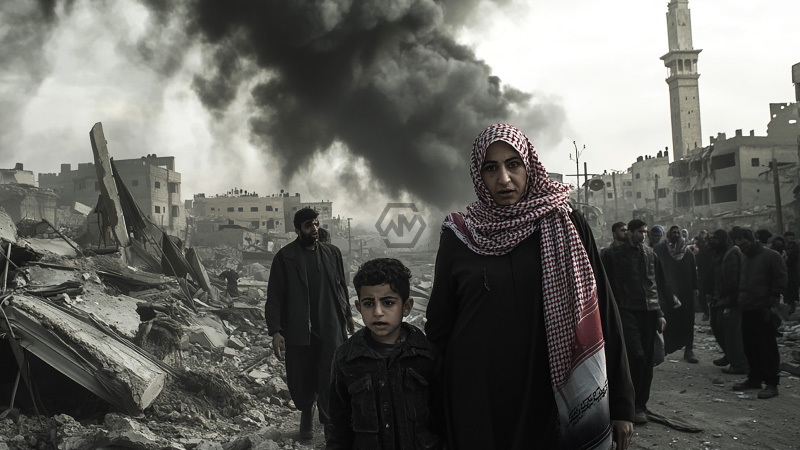- Israel resumes ceasefire talks despite fresh strikes killing 70 Palestinians.
- Netanyahu heads to Washington for key negotiations on hostages and Gaza’s future.
- Disputes persist over humanitarian aid distribution and Hamas’s political role.
The Gaza conflict has entered its 21st month with renewed urgency as Israeli airstrikes on Sunday claimed at least 70 Palestinian lives, intensifying the humanitarian toll. Most casualties were reported in Gaza City, which has borne the brunt of recent bombardments.
Prime Minister Benjamin Netanyahu is also en route to Washington for high-level discussions with U.S. President Donald Trump. Their meeting will address the broader trajectory of the war, a potential hostage deal, and measures to curb Iran’s nuclear ambitions.
Renewed Ceasefire Talks Clash with Escalating Gaza Strikes and Political Tensions
At the heart of the proposed ceasefire is a 60-day truce guaranteed by the United States, the release of Israeli captives, and the restoration of humanitarian aid routes. However, conflicting visions persist: Hamas wants UN-led aid efforts across 400 sites, while Israel favors continued control via its Gaza Humanitarian Foundation. These divergent priorities threaten to stall meaningful progress at the Doha negotiations.
Netanyahu’s domestic position is increasingly complex, facing criticism from both moderates and hardliners. Some accuse him of delaying humanitarian access, while others warn that any compromise with Hamas undermines the war’s original objectives. Nevertheless, his administration has shown flexibility, reportedly making limited concessions to advance the hostage negotiations—albeit with the threat of renewed military action if talks fail.
The toll on civilians continues to mount, with more than 57,000 Palestinians—primarily women and children—killed since October 2023, according to Gaza’s health ministry. Despite global calls for restraint, the latest strikes targeted densely populated areas, raising further alarm over potential violations of international law. This comes amid ongoing investigations by the International Criminal Court, which has already issued arrest warrants against top Israeli leaders.
In parallel, discussions are underway about post-war Gaza, including controversial emigration plans reportedly involving up to six countries. While details remain unclear, sources say three states have already agreed in principle to host large numbers of Gazans. Critics argue this policy may amount to forced displacement, further complicating the region’s long-term stability and deepening Palestinian grievances.
As diplomatic efforts gain momentum, the enduring gulf between military objectives and humanitarian imperatives continues to challenge prospects for a lasting peace in Gaza.
“Peace is not absence of conflict, it is the ability to handle conflict by peaceful means.” — Ronald Reagan



